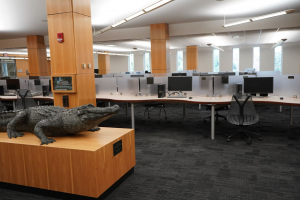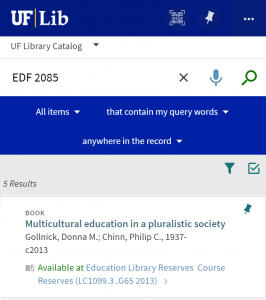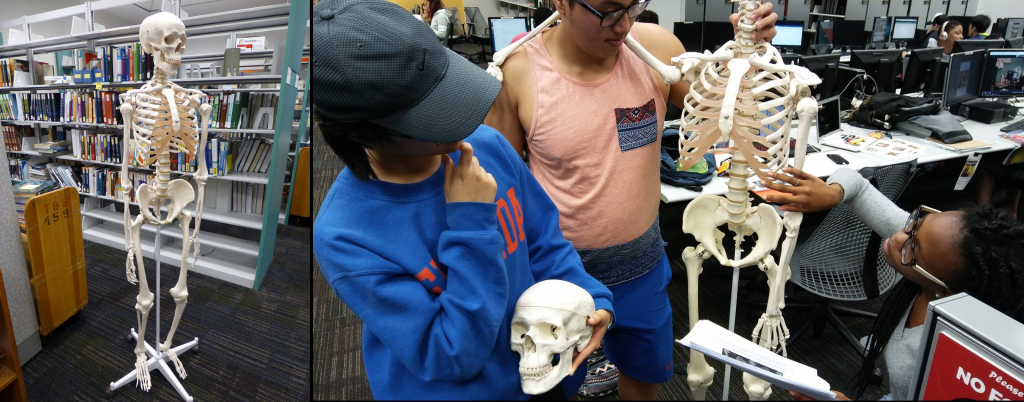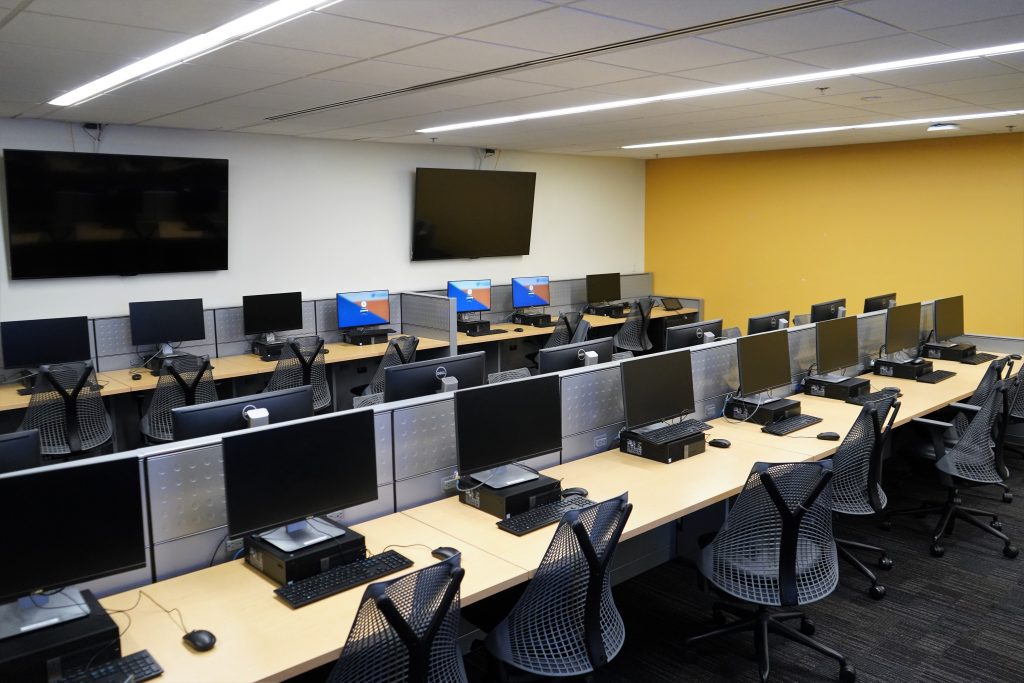Crash Course in Using the George A. Smathers Libraries
5 Course Reserves and Computer Access
Course Reserves through the Libraries

Textbooks are expensive and not everyone is able to buy them. What happens if you don’t have the book for your class? What happens when you’re studying on campus between classes, but your textbook is at home? You can use course reserves at the libraries!
Course reserves are materials (including items like print books, textbooks, e-books, journal articles, DVDs, and more) that are placed on reserve by your professors.

Course reserves materials are available either electronically or physically.
- Print textbooks are available to use in the Libraries, but they can’t be checked out to take home, so plan accordingly! These items can be borrowed at a branch library circulation desk for short-term use.
- Most of the libraries have book scanners available where you can electronically copy and save sections of these print books as a PDF for your own use.
- Electronic Course Reserves items are accessed through the Ares Course Reserves system via your Canvas account. For many courses, these electronic items are linked directly in Canvas.
You can find out which branch physical items are located in by searching the Libraries catalog for your course number, including the space (such as “EDF 2085” for Teaching Diverse Populations). Try it out in the Libraries catalog now!

Computer Access on Campus

If you need access to a computer while you are on campus, every library branch has computers available. Simply grab a seat and log in with your GatorLink username and password. These computer labs are open to the public. If you have guests visiting you who are not affiliated with UF, the Libraries can create a guest username to give them access to the computer lab too! The largest computer labs are located in Library West and Marston Science Library. These two libraries are also open late, in case you are in need of a computer at night or over the weekend.
In addition to the computers available in the Libraries, UF students can also use the six computer labs operated by UF Academic Technology with their GatorLink accounts. These locations offer late hours (some are even open 24/7) and are a great resource when the Libraries are closed.
Course reserves are materials, such as textbooks and journal articles, available for use in specific courses at the request of your professors. Some items are available in print in the libraries and some are electronic materials online. Course reserves are a way for you to access course materials at no cost.
E-books are electronic books that can be read from your computer, phone, or tablet. Students at UF have access to a huge number of e-books through the Libraries that can be used for classes, research, or entertainment. You can read these from the comfort of your own bed!
A journal is a publication issued on a regular basis that contains scholarly research. Journals contain research and perspectives published as articles, reviews, papers, research reports, or technical reports. Scholarly journal articles are usually peer reviewed.
Circulation refers to the lending aspect of libraries. A circulating item is something that you can borrow and take home. The circulation desk (or “Service Desk”) is where you can check out these items. The circulation staff are library workers who manage all aspects of the borrowing process.
Ares is an online course reserve system. Electronic materials (such as e-books, journal articles, and streaming video) selected by professors for your classes can be accessed online through the Ares. These items are often linked to your course Canvas page, as well. For many of the electronic items supplied through the UF Libraries, you’ll also need to connect using the VPN if you are off campus.
A library catalog (much like a clothes catalog) is the log of all items (books, journals, DVDs, etc.) that the library owns or has access to.
Your GatorLink account is the username and password you use across all UF websites and systems.

